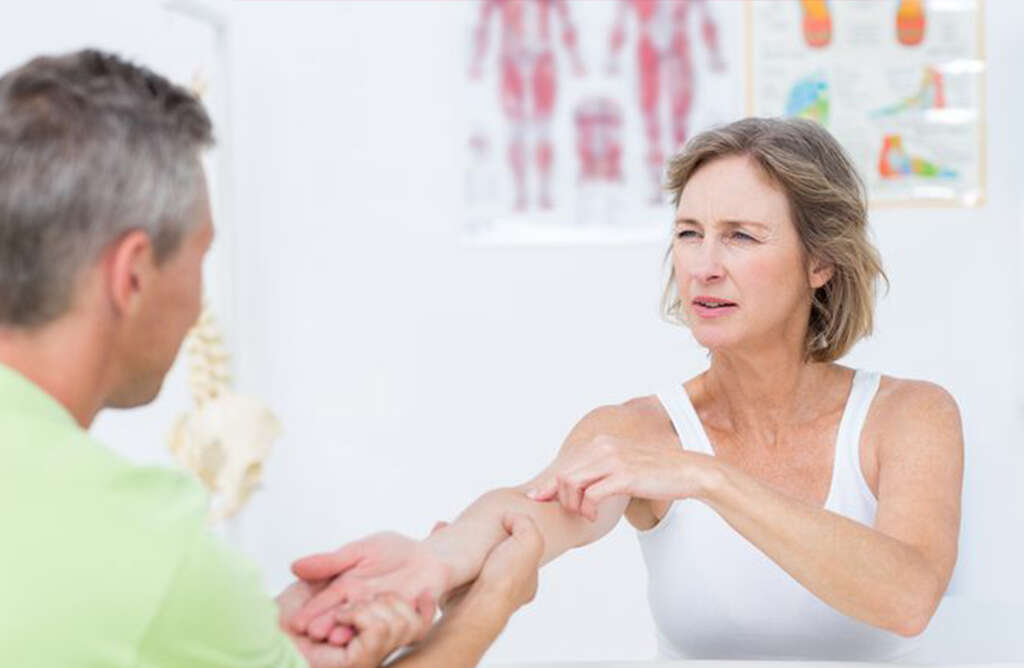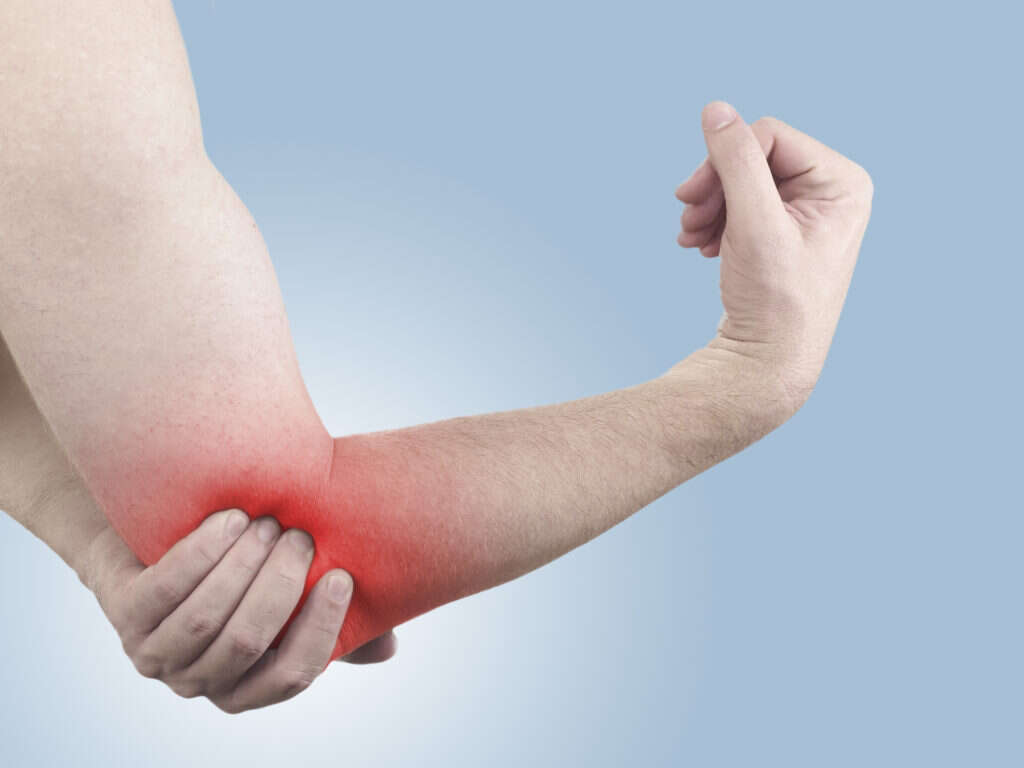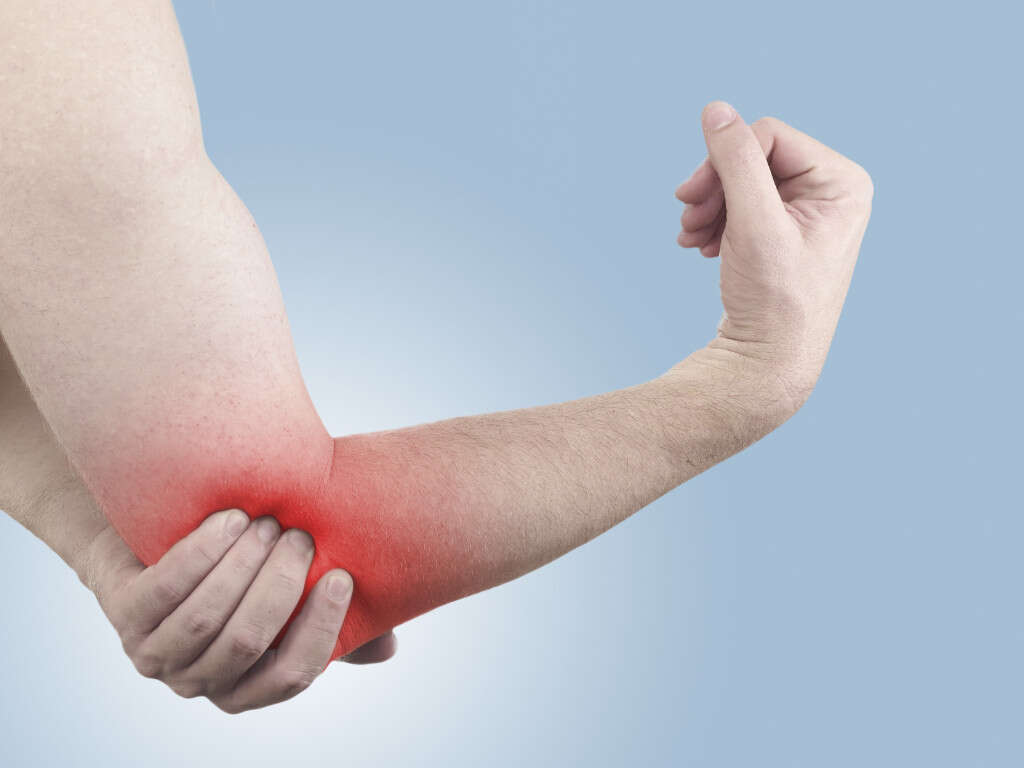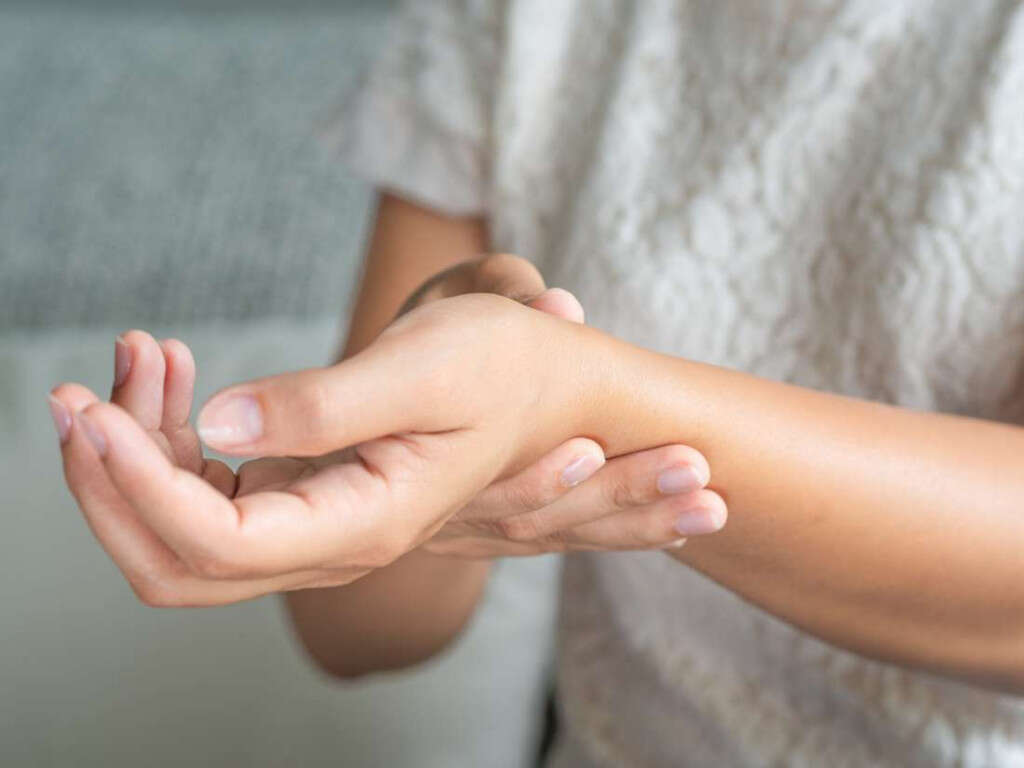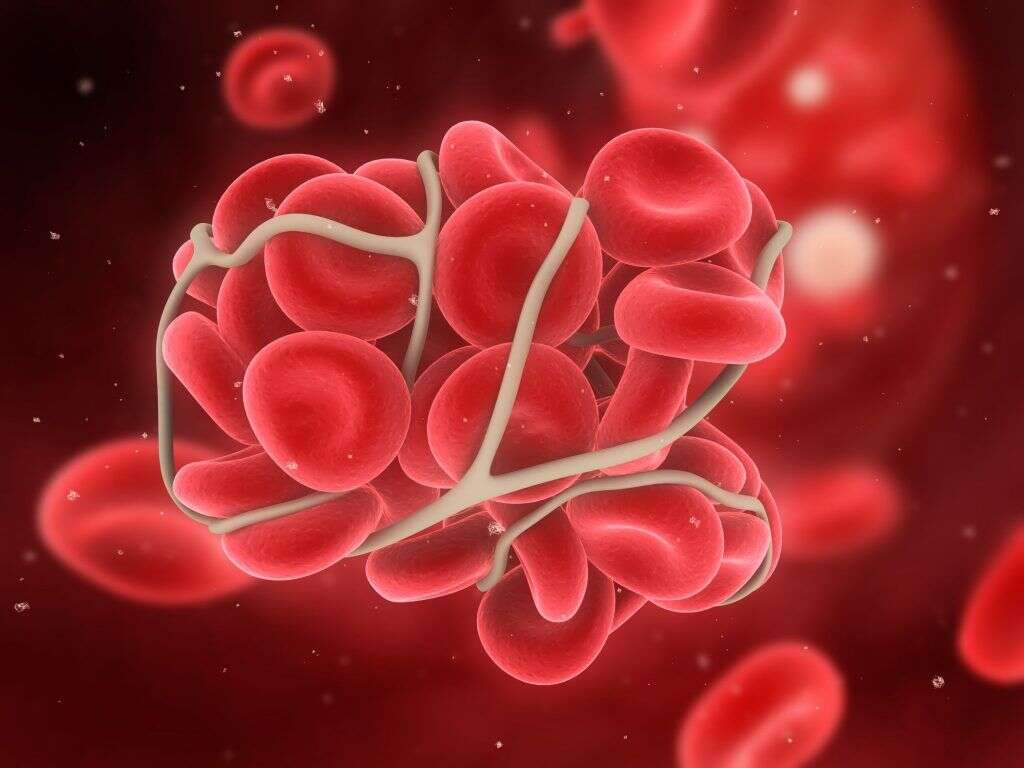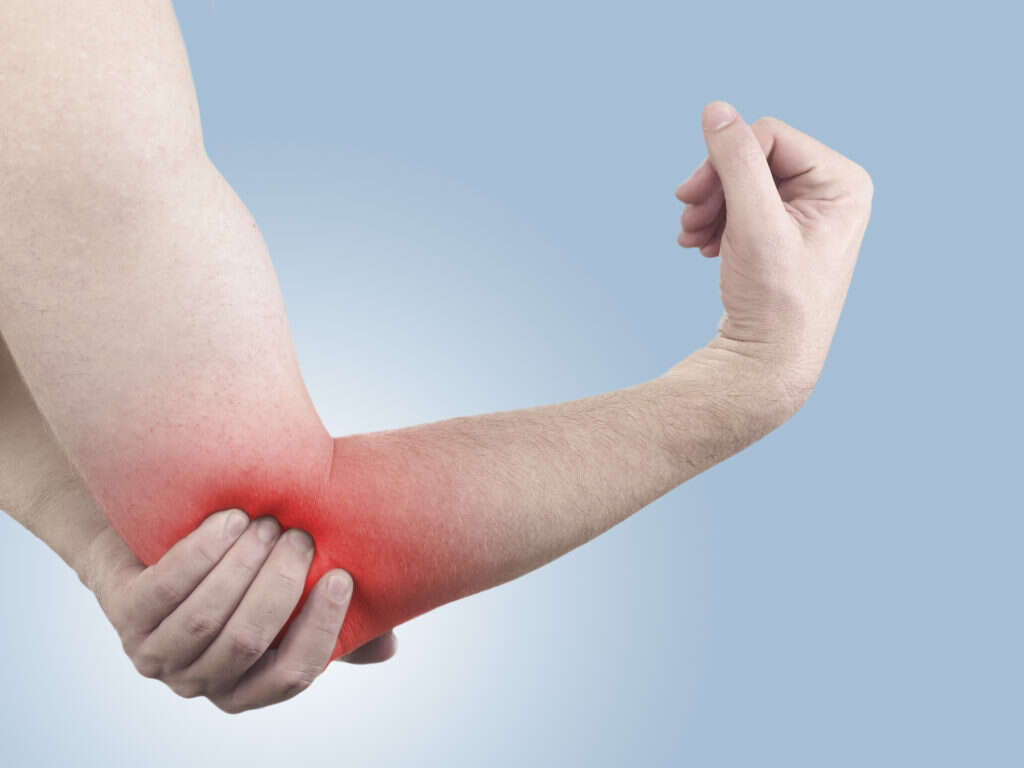10 Symptoms of Tennis Elbow
Tennis elbow is elbow pain due to inflammation of the tendons in the forearm that attach to the outside of the elbow. Overuse of the elbow and repetitive motions cause the inflammation. While it’s true that tennis players are most likely to develop this painful problem, tennis elbow is a condition that affects other people as well. Plumbers, typists, factory workers, and smiths are all likely candidates to develop the condition. If you live a lifestyle or work at a job in which you frequently make repetitive motions, then it’s important to be cautious.
It’s been suggested that almost half of all people have some degree of tennis elbow at some point in their lives. People of all ages can develop the condition, but middle-aged people who are thirty to forty years old experience the condition most often. Tennis elbow doesn’t usually lead to many serious complications, but it can be quite irritating. If it is not managed, the discomfort and pain associated with tennis elbow can become severe enough to affect daily life. Here are ten common symptoms of tennis elbow.

Symptom #1: Pain in the Forearm
Pain in the forearm, particularly in the upper forearm, is a good indicator that someone is developing tennis elbow. The pain is typically a persistent burning sensation and tends to strike the outer arm, close to the elbow.
The burning pain alone is not necessarily indicative of tennis elbow since the symptom can occur in several other conditions. However, it may be tennis elbow if pain in the forearm occurs in conjunction with other symptoms of the condition.

Symptom #2: Pain during Physical Activity
One of the most common indicators of tennis elbow is pain that becomes more intense when engaged in physical activity. While it’s true that arm pain can be indicative of a number of problems, it’s more likely to be tennis elbow if this pain becomes aggravated whenever you perform certain motions, such as raising or bending the arms.
Activities as simple as using a pen or opening a door can cause discomfort and pain for someone suffering from tennis elbow.

Symptom #3: A Desire to Rest Your Arms
People with tennis elbow often need to rest their arms, and they may feel a strong desire to take strain off the arms even during activities that they once found easy.
The pain from tennis elbow will decrease significantly when the arms are not being used. If resting doesn’t decrease the pain, it may be a different problem, so people should seek medical advice.

Symptom #4: Different Pain at Different Times
In tennis elbow, the pain is more serious at different times of the day, which is a characteristic similar to other painful conditions that affect the bones and joints. People suffering from tennis elbow often experience more pain and stiffness in the morning.
The pain generally decreases throughout the day if the area is not overexerted.

Symptom #5: Tenderness
Tennis elbow is also known to cause tenderness, which is a bit different than pain. Pain can occur whether or not the arm is actually under pressure or being used. Tenderness, on the other hand, tends to occur only when pressure is being applied to the area.
Tenderness is not generally as uncomfortable as pain, but it can make it more difficult to engage in regular activities. It is not usually a problem unless the arm is being used and subsides when the arm is allowed to rest.
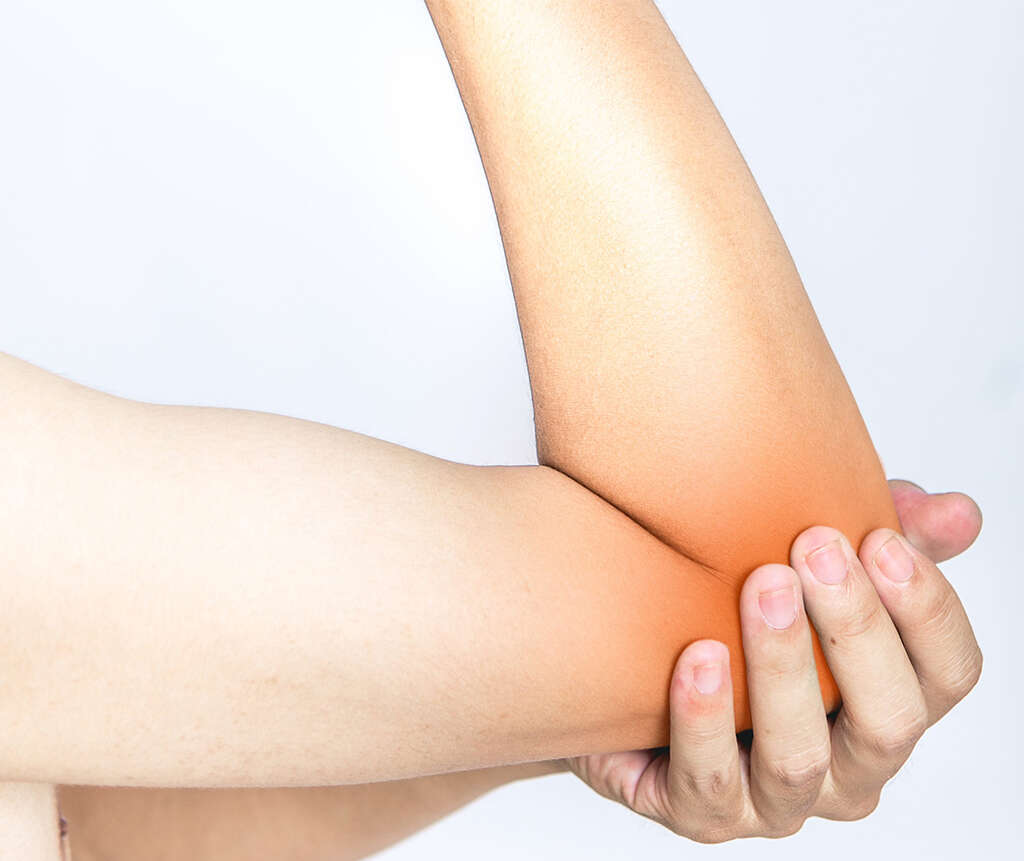
Symptom #6: Elbow Pain When Grasping Things
Pain from tennis elbow becomes more apparent when gripping or carrying something. This can be difficult for people who have to grasp and carry things during their daily lives, such as tennis players, who have to grip the handles of their rackets.
Hockey players, typists, skiers, and others may also have difficulty using their equipment if they suffer from tennis elbow.

Symptom #7: Sore Forearm Muscles
Another common symptom of tennis elbow is sore forearm muscles. This muscle soreness is separate from the pain that occurs in the upper part of the forearm and the tension and pain that occurs in the elbow.
It feels similar to the soreness that results from overexerting a muscle. The muscle soreness can be persistent and range from mild to severe.
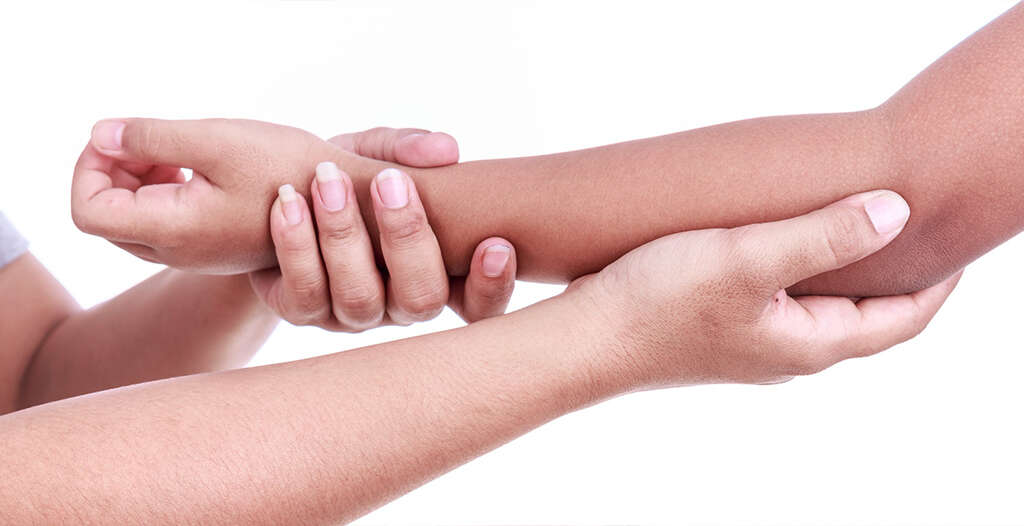
Symptom #8: Varying Types of Pain
The types of pain that people experience when they have tennis elbow can change in nature. It often begins as a burning sensation that starts near the top of the forearm. The pain spreads to the elbow and is generally more intense when using the hands or lifting something.
The more the muscles are used, the farther the pain can travel. If the forearms aren’t rested, the pain can travel down to the wrist or up toward the shoulder. The direction that the pain travels and the areas that it targets depend on the nature of the injury.
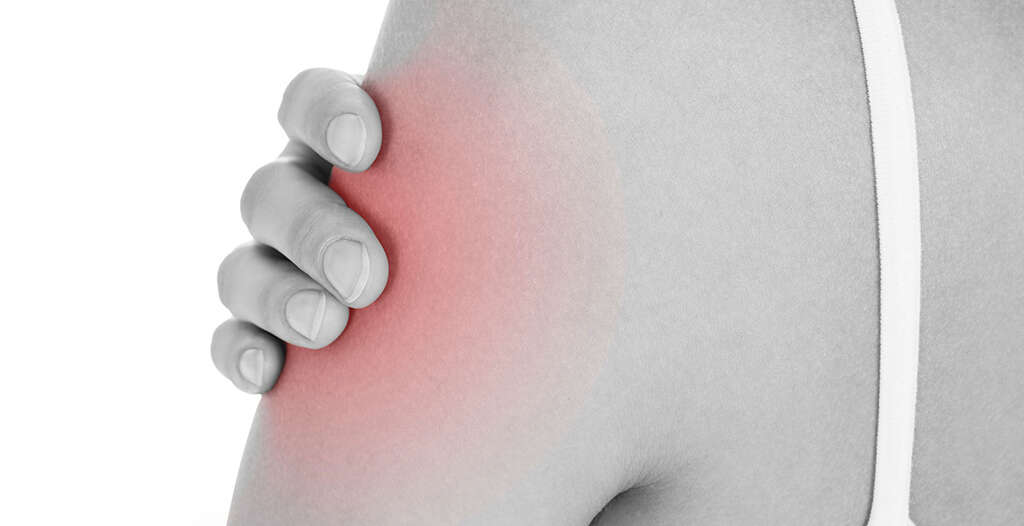
Symptom #9: Resistant Pain
People suffering from tennis elbow might notice that the pain doesn’t subside easily. Using ice or over-the-counter anti-inflammatory medication doesn’t help to curb the pain.
The easiest way to manage tennis elbow is to simply rest the arm, but sometimes even resting isn’t enough to ease the pain. In more serious cases, it’s a good idea to seek medical attention before the problem limits mobility.

Symptom #10: Numbness or Weakness
Weakness in the hands and wrists can occur in people suffering from tennis elbow, if only because the muscles may grow weak from disuse. Weakness isn’t a common symptom of tennis elbow, but it can happen in some of the most serious cases.
Regardless of the cause, if there is frequent numbness in the hands, seek medical help because it could be a sign of a more serious problem.
